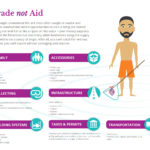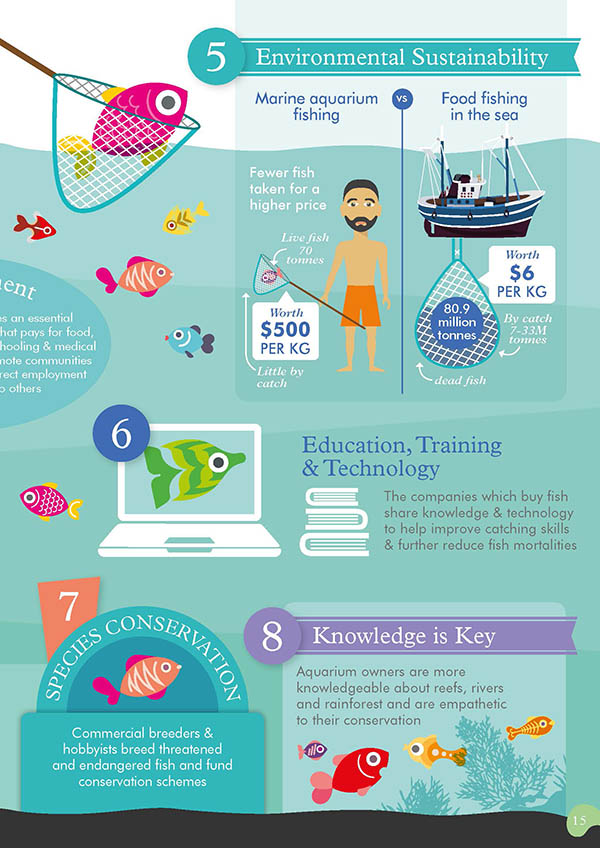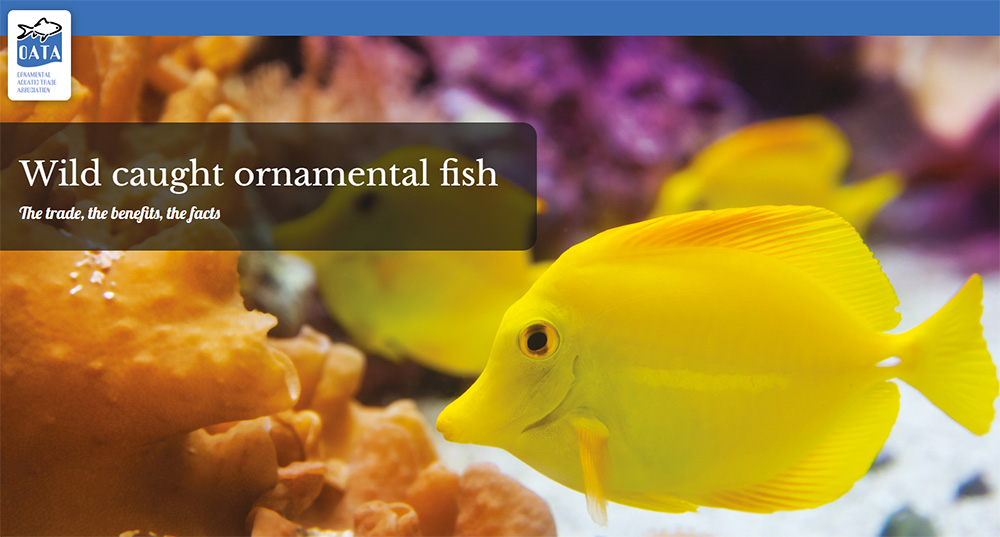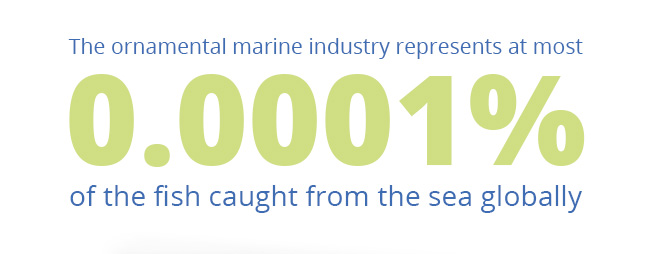Ornamental Aquatic Trade Association Press Release, May 19, 2016
A new report looking at the positive benefits of wild-caught fish has been launched by the Ornamental Aquatic Trade Association (OATA).
The UK trade voice has long argued that fish caught in the wild from reefs, rivers and Rift Valley lakes can offer much-needed opportunities in remote parts of the world for people to earn a sustainable living from their local environment.

Report sections like “Trade Not Aid” provide concise insights into the value of the trade in wild aquarium fishes.
The report looks at where fish are caught across the world, how they travel to the UK and the regulations that govern each part of that journey. It also examines the alternative livelihoods that might be open to fisher communities if they could no longer provide live fish for the aquarium trade.
The report – entitled Wild Caught Ornamental Fish: the trade, the benefits, the facts – draws on information contained in a specially commissioned literature review by the University of Kent’s Durrell Institute of Conservation and Ecology (DICE) as well as other information compiled by the trade association.
OATA asked the highly-respected Institute to investigate the positive benefits of wild caught ornamental fish last year. Dr David Roberts and Ian Watson from DICE, which is part of the School of Anthropology and Conservation at the University, undertook a literature search for relevant research and associated papers from governments and NGOs that demonstrated the economic, social and environmental benefits that wild taken fish can bring to indigenous communities. DICE also presented two case studies to illustrate the human story behind the trade, with help from LINI in Indonesia and FundAmazonia in Peru.
“We believe it’s vital people start to understand the human story behind the issue of wild caught fish,” said OATA Chief Executive Keith Davenport.
“Animal welfare and sustainability are important, and where poor practice is found we need to address this. But we should also acknowledge that the people involved in catching these fish are also important and we mustn’t lose sight of that. What would the alternative livelihoods be for those remote communities and are we so sure the alternatives are ‘better’?
“Our report shows ornamental fish caught for our industry represent a very tiny percentage of the total number of fish caught from across the globe. Many countries that supply live ornamental fish are on the UN’s low human development and least developed countries’ lists as well as many which hold Small Island Developing States status.
“So catching live fish for aquariums rather than dead fish for the plate can provide people with a better income – trade not aid. And it offers a good incentive to conserve the local environment by providing people with a sustainable livelihood.

Sample page from the highly readable new OATA Report.
“We need hobbyists, the industry and politicians to take these issues into account when they start to question taking fish from the wild.”
Read the report here at http://wcof.ornamentalfish.org/ and you can see case studies and sources here at http://www.ornamentalfish.org/wild-caught-fish.
###
Editor’s Note – a downloadable PDF version of the report can be accessed here: http://www.ornamentalfish.org/wp-content/uploads/Wild-caught-ornamental-fish-the-trade-the-benefits-the-facts.pdf
About the OATA: OATA (the Ornamental Aquatic Trade Association) was established in 1991 and currently represents more than 800 members from across the ornamental aquatic industry from importers and wholesalers to suppliers and retailers. Its core mission is to protect and promote the ornamental aquatic industry and to ensure its longevity by proactive and continuous lobbying and marketing activity at local, national and international levels as well as promoting education and training within the industry and among the hobbyist to encourage and support responsible pet ownership.
Ornamental Aquatic Trade Association Ltd (OATA)
1st Floor Office Suite, Wessex House, 40 Station Road, Westbury, Wiltshire BA13 3JN UK
Telephone: 01373 301352
Fax: 01373 301236
A Company Limited by Guarantee and Registered in England No 2738119 Registered Office as above.







